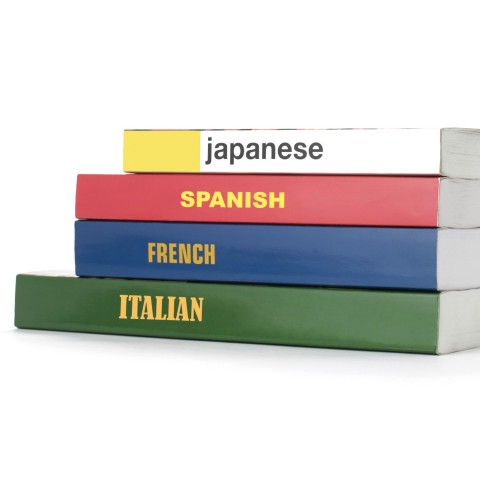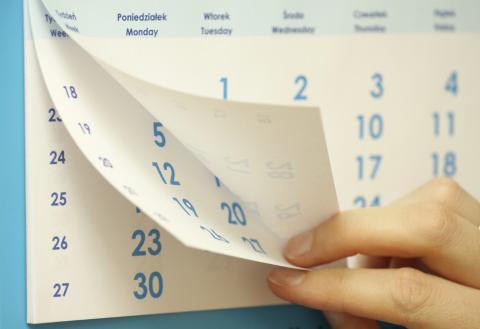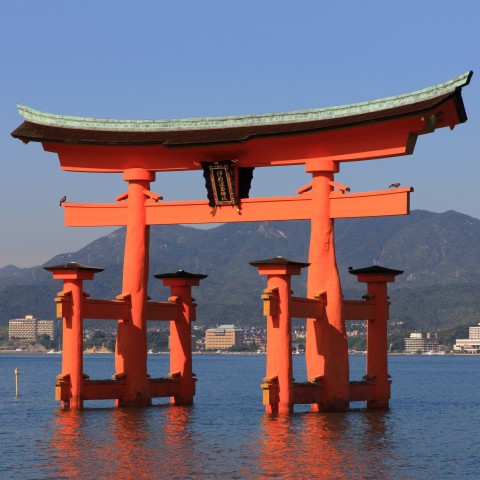
Maybe you have heard of the Japanese national anthem on TV from World Cup football championship or commendation ceremonies of Olympic Games, but did you know that the Japanese national anthem “君が代 kimigayo” has first place in two categories? The lyrics of 君が代 kimigayo are the oldest among the world’s national anthems, and it is the shortest in the world!
Originating from the pure art of Japanese ancient poetry, Kimigayo reflects the profound Japanese culture and art, yet it is also deeply related to the Japanese emperor system that has existed for over 1000 years and is an inextricable part of Japan. Embracing such long history and countless unfolding affairs in times, the Japanese national anthem is also cast a dark shadow by the wars, resulting in the controversy of its pros and cons until now.
In this article, we will introduce all the facts about the Japanese national anthem, including explanations about the lyrics, the history and how it evolved, occasions when the national anthem is sung, and the controversy over the different interpretations of Kimigayo. Let’s learn all about the Japanese national anthem here at Japanesepod101.com!
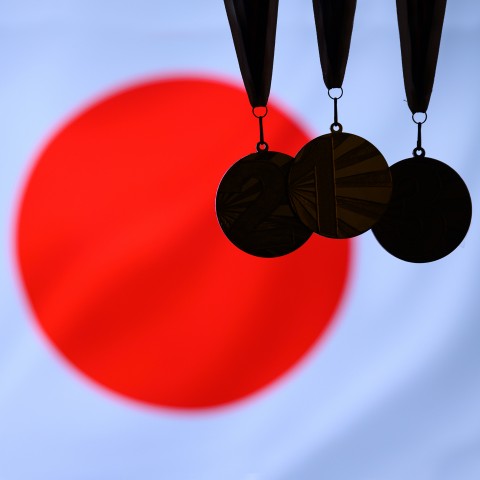
国歌 kokka (“National Anthem”)
 Table of Contents
Table of Contents
- Japanese National Anthem Lyrics and Music
- History of Japanese National Anthem
- When is the Japanese National Anthem Typically Sung?
- Cultural or Political?
- Conclusion
1. Japanese National Anthem Lyrics and Music
1. Lyrics
As mentioned, the Japanese national anthem lyrics are the world’s oldest as well as the shortest, with a length of only 32 characters.
The lyrics are originally from the Japanese poem 和歌 Waka of the ancient anthology 古今和歌集 Kokin Wakashū from the 10th century. The original author of this poem is unknown, but it became the most well-known song in Japan many centuries later: the national anthem.
| 君が代 KimigayoThe Japanese National Anthem | |||
| Kanji | Hiragana | Reading | English |
| *君が代は 千代に八千代に **さざれ石の 巌となりて 苔のむすまで | きみがよは ちよにやちよに さざれいしの いわおとなりて こけのむすまで | kimi ga yo wa chiyo ni yachiyo ni sazare ishi no iwao to narite koke no musu made | *May your reign Continue for a thousand, eight thousand generations, **Until the tiny pebbles Grow into mighty rocks And moss grow on them |
*君が代 Kimigayo is often translated as “your reign / His Imperial Majesty’s Reign” when it’s talked in the context of the Emperor, yet legally no official translation of the lyrics has been established. In general, “君 kimi” means “you” and “代 yo” means “generation or lifetime.” In the original Waka poem, “You” meant the person who receives the celebration as it was originally a dedicated poem to celebrate the longevity of those who receive it. Therefore, it is translated as “May your life (last for a long time)” in the original meaning.
**さざれ石の 巌となりて 苔のむすまで sazare ishi no iwao to narite koke no musu made (“Until the tiny pebbles grow into mighty rocks and moss grow on them”) expresses the endless years of eternity by conveying in a visual image.
さざれ石sazare ishi originally means small pebbles. 巌 iwao refers to a boulder conglomerate of calcareous breccia, which has been transformed into one large rock mass by filling the gaps between pebbles fragments with calcium carbonate (CaCO3) and iron hydroxide over long years. In some cases, this rock is also called sazare ishi.
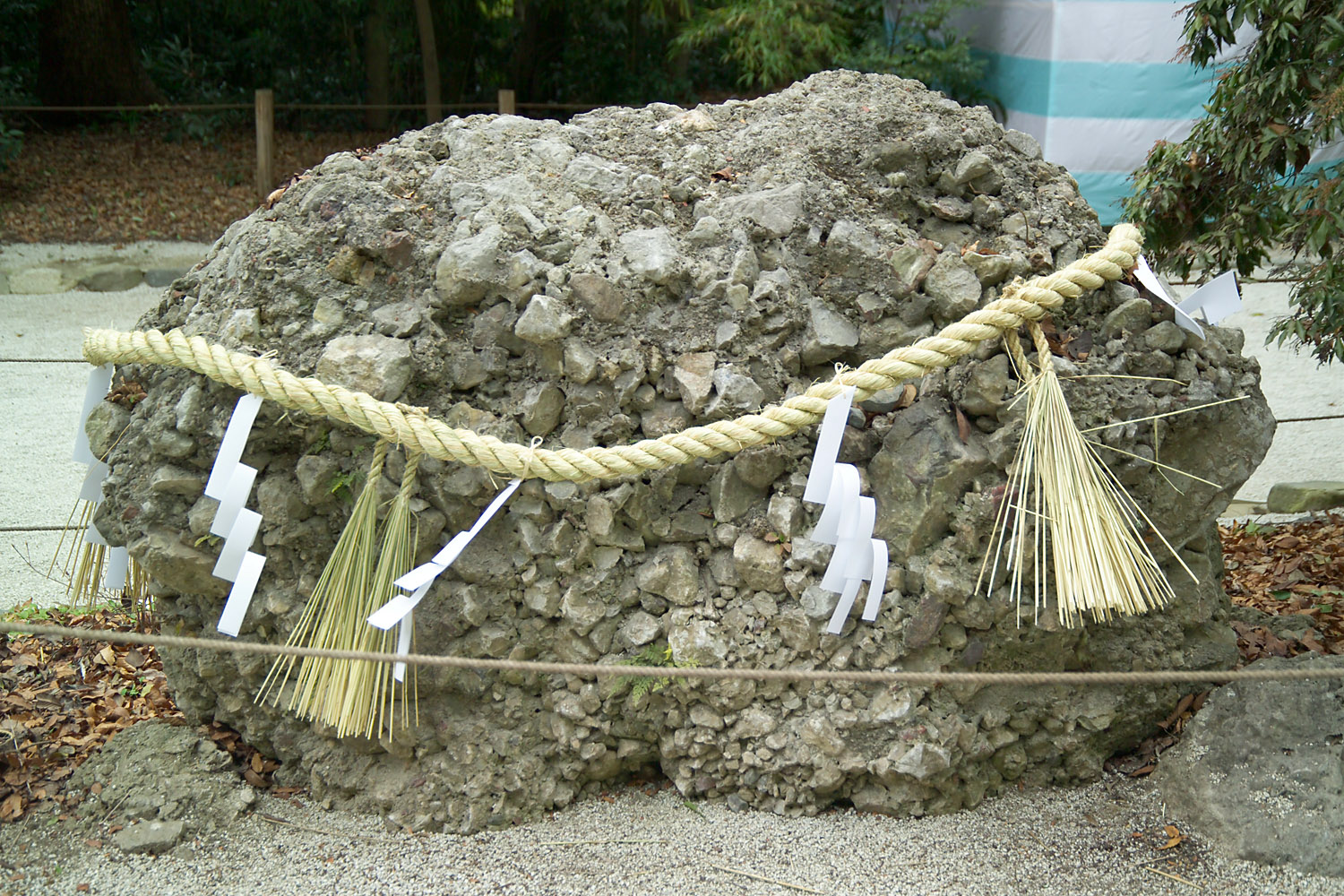
さざれ石の巌となりて Sazare ishi no iwao to narite
(“small pebbles grow into massive rocks”)
2. Music
Although Kimigayo is very short music with a length of 11 measures and less than 45 seconds (when played with♩=60), the Kimigayo’s solemn and refined melody is majestically impressive and conveys the beauty of simplicity.
The current melody was adopted in 1880 and composed by the Court Music Division of the Ministry of the Imperial Household. It replaced the previous melody due to its unpopularity, which was made by composer John William Fenton, allegedly the first person to systematically teach the theory of Western music in Japan. From 1893, the harmony-arranged version was used for official ceremonies, and it was widely used as the national anthem by 1930. In 1999, the Act on National Flag and Anthem made it the official Japanese national anthem.
If you’d like to listen to Kimigayo, here are a few examples:

日本の国歌は君が代です。 Nihon no kokka wa Kimigayo desu.
(“The national anthem of Japan is Kimigayo”)
To learn facts about the Japanese language, please check out Japanese Language Overview and Is Japanese Hard to Learn?
2. History of Japanese National Anthem
1. Ancient Poem
The lyrics of Japanese national anthem 君が代 Kimigayo are from the Kokin Wakashū 古今和歌集 (“Collection of Japanese Poems of Ancient and Modern Times”), an early anthology of the Waka form of Japanese poetry, dating from the Heian period the early 10th century.
In the original poem, “君 kimi” indicates a person who is close to you rather than referring to a specific person, and it is said to be a poem that celebrates his longevity.
On the other hand, there are other interpretations for the ancient time. Some interpret it as a poem about the eternal bond between men and women.
In the ancient Japanese language, it is considered that ”き ki” stands for male and “み mi” for female. The first male and female creator deities were イザナギ(キ)izanagi(ki) and イザナミ izanami in the Japanese mythology, and gi/ki from izanagi(ki) meant male and mi from izanami meant female. From the concept that God is the perfect existence, it is believed “君 ki + mi “ refers to a men and women who have completely grown up physically and mentally (perfect existence). Thus, Kimigayo poem is interpreted as “May the grown up man and women get together and have strong bonds for a long time throughout the ages like small pebbles are combined into a mighty rock over time.”

If you are interested in Japanese quotes, please check out Japanese Quotes That Will Enrich Your Life.
2. Kimigayo and Traditional Art Culture
Kimigayo and other ancient poems were used for a 朗詠 Rōei poem reciting (“singing joyfully in a loud voice”), and it had spread rapidly to the general public since the Kamakura period (12th – 14th century).
It had also come to be used in various ways, not limited to 賀歌 Gaka (celebration poetry) but also for Buddhist events and a variety of Japanese entertainment arts, such as 田楽 Dengaku (rustic celebrations with music and dance), 猿楽 Sarugaku (“monkey music” a type of theater), and 謡曲 Yōkyoku (a type of dance-drama theater). Until the Meiji Era (19th -20th century), Kimigayo was sung and used mainly for the Japanese traditional arts.
If you want to know more about Japanese culture, please see A Brief Overview of Japanese Culture.
3. Kimigayo as Ceremonial Music
In 1869, the British Minister Harry Parks notified Japan that Alfred, Duke of Edinburgh, would visit Japan and stay for about a month. On the occasion for his reception, the Irish military band leader, John William Fenton, realized there was no national anthem in Japan. He suggested that a national anthem or some ceremonial music should be created, and offered to compose one himself. The lyrics were chosen by the Japanese commander and the first official ceremonial song was created. However, it was not popular or welcomed among Japanese people because they believed the melody composed by Fenton lacked dignity.
The concept of a “national anthem” was born in modern Western culture and was indispensable for diplomatic ceremonies at the end of the Edo period when Japan opened the country to the world. Japanese military commanders and politicians came to be aware of the need for a national anthem on occasions of diplomatic ceremonies and the music score was revised in 1880. The music was arranged with Western style harmony for wind-instrument music by the German naval music teacher Franz Eckert and it had been played as the official ceremonial music in the various scenes, such as the reception of international honored guests and sporting events.

1888年に対外正式公布 1888-nen ni taigai seishiki kōfu
(“Diplomatically officially promulgated in 1888”)
4. Kimigayo as National Anthem
Before the World War Ⅱ
Although Kimigayo was not the legal national anthem at the time, it was often performed and sung on official occasions. At the turn of the 20th century, Kimigayo began to be associated with the idea of honoring the Emperor along with the situation where wars arose. It also influenced Japanese education. In the textbooks for 4th-grade students at an elementary school, which was established in 1941, it was written “The song of Kimigayo means that the reign of the Emperor will continue to prosper for thousands of years. It is a song that the people sincerely praise and celebrate.” The Japanese people came to be familiarized with Kimigayo as the Japanese national anthem when there were waves of celebrations after the First Sino-Japanese and Russo-Japanese Wars victories. This trend continued until the end of the World War Ⅱ.
After the World War Ⅱ
During the American occupation of Japan from 1945, GHQ General Headquarters, the Supreme Commander for the Allied Powers totally banned the 日の丸 Hinomaru (“the circle of the sun” meaning the Japanese national flag) hoisting and banned singing Kimigayo, and singing of Kimigayo had been removed from the National School Ordinance Enforcement Regulations of 1946. During 1940’s various entities created new songs as an alternative to Kimigayo. However, none of them were adopted as the national anthem officially. After the San Francisco Peace Treaty in September 1951, Kimigayo was often performed again corresponding to the national anthem at official ceremonies.
After the restoration of sovereignty, the educational guideline in 1958 stated that “when performing ceremonies, it is desirable to raise the national flag and sing the national anthem of Japan” and since then Kimigayo had been sung at school widely. While Kimigayo had been played as a de facto national anthem for a long time, legislation had progressed later due to the lack of legal ground. The “Act on National Flag and Anthem” which legally established Japan’s national flag and the anthem was enacted on August 9, 1999, and it came into effect 4 days later. The Act states the interpretation of Kimigayo as: “Kimigayo indicates Japan as the country, in that the emperor symbolizes Japan and the unification of the Japanese people, based on the consensus of the Japanese people.”
In response to this, the 1999 educational guideline issued by the Ministry of Education decrees that “on entrance and graduation ceremonies, schools must raise the flag of Japan and instruct students to sing the national anthem Kimigayo, given the significance of the flag and the song.”
If you want to learn how to talk about nationality in Japanese, please see our article Countries and Nationalities in Japanese.
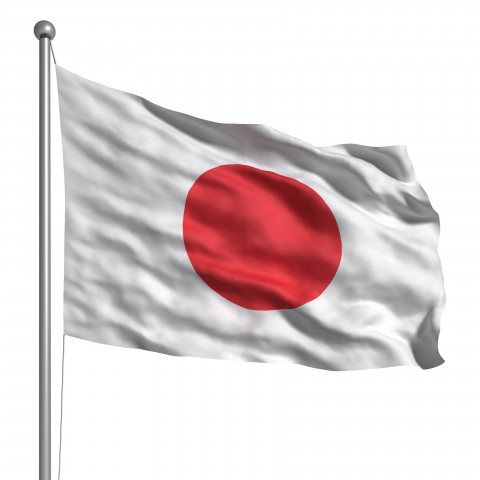
3. When is the Japanese National Anthem Typically Sung?
The national anthem 国歌 kokka (literally, “national song”) is the symbol of the nation and the people that glorifies the country with music presentations. The Japanese national anthem Kimigayo is sung on various important and formal occasions including national and international events as listed below.
国歌演奏 / 吹奏 kokka ensō / suisō (music performance/ brass band of the National Anthem)
- Commendation ceremonies at Olympic Games
- Some radio and television stations play it at the beginning and end of the broadcast
国歌斉唱 kokka seishō (singing the National Anthem altogether)
国歌斉唱 kokka seishō means that all participants of events sing the national anthem altogether with (the brass band) musical performance at national events and other important events. When singing the national anthem, it is common manners to stand up and take off hats, pay attention to the national flag, and sing the anthem with respect.
- Entrance and graduation ceremonies at school (elementary, middle high, high school, and university)
- Coming-of-age ceremony
- Convention of political party
- National memorial service for the war dead
- Japan self-defense forces marching festival etc.
Sports related events
- National sports festival
- Inter-high school athletics competition
- Sumo wrestling tournament
- Emperor’s prize horse race
- Games of professional baseball, football, basketball, boxing etc.
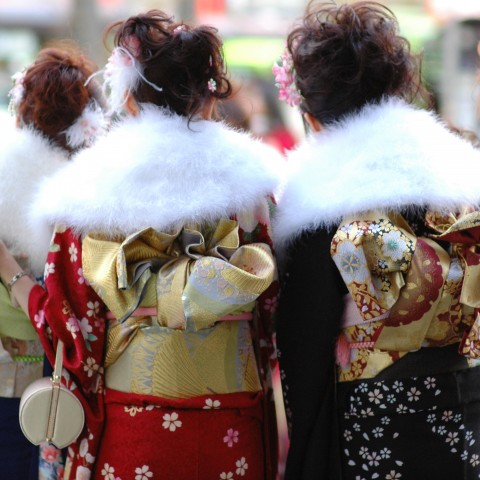
国歌は成人式でも歌われます。Kokka wa seijinshiki de mo utawaremasu.
(“The national anthem is sung also at the ceremony of coming-of-age” )
国歌独唱 kokka dokushō (representative sings the National Anthem alone)
国歌独唱 kokka dokushō means that the representative sings the national anthem alone with the brass band music at national events and other important events. It is often at sports competition events, and like many other countries, a famous singer or music group is often invited to sing the national anthem in front of spectators.
[Sports related events]
- High school baseball
- Japan professional football league
- Japan professional baseball league
- Japan professional boxing title match
- Tennis championship
- Marathon championship
- Bicycle race championship
- Formula 1 etc.
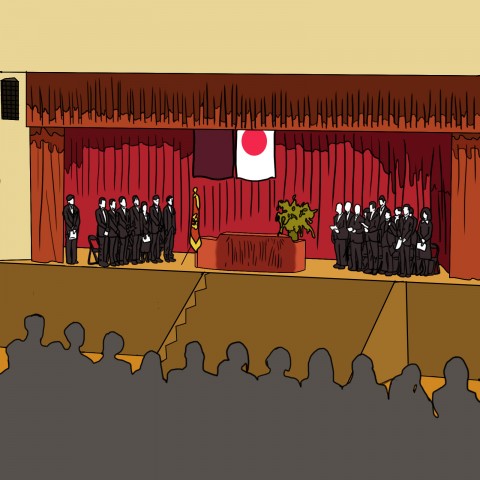
国歌は学校の式で歌われます。Kokka wa gakkō no shiki de utawaremasu.
(“The national anthem is sung at the ceremonies at school”)
4. Cultural or Political?
Kimigayo is probably one of the world’s most controversial national anthems. The controversy especially rose after World War 2 that Kimigayo is not appropriate as a national anthem because it associates with the military wartime as it was used to praise the Empire of Japan and honor the Emperor.
The pro and con opinions may vary as we look into the history of Kimigayo from a cultural or political point of view. Below are opinions of the pros and cons;
Reasonings For Using It
- The original Kimigayo is purely an artwork of Japanese culture and tradition, and it is a poem about blessing a long life and national peace.
- It has been used as a celebratory song in various Japanese traditional arts over centuries and the political intention is merely an afterthought.
- In the light of the classics, “君 kimi” simply means “you”, and therefore Kimigayo is a “song to pray for your health and longevity”, so the claim that the criticism of “the song of the emperor” does not apply in the first place.
- Even if “君 kimi” indicates “emperor”, it is nothing but “Emperor as a symbol of the unification of Japan and the Japanese people” stipulated in the Constitution of Japan. Therefore, the song praising him (emperor as a symbol) does not contradict the principle of the “Constitution of Japan”.
- The singing of Kimigayo at school is indispensable for nurturing the awareness and pride of Japanese people in the hearts of children. In an era of active international exchange like today, it is even more important to establish a Japanese identity through the national anthem. In the first place, ritual practices for national anthems are international common sense, and teaching such common sense is reasonable education. What is more, it does not lead to the revival of militarism or totalitarianism.
Reasonings Against Using It
- Kimigayo is not appropriate as a national anthem of modern Japan because it is associated with military wartime and worshiping the emperor as a god.
- It is the national anthem of the Empire of Japan, and the lyrics have a strong meaning of honoring the emperor.
- Kimigayo meaning “the reign of the emperor” was appropriate for the Constitution of the Empire of Japan, where the emperor was an absolute authority, but not for the Constitution of Japan which is based on the principle of popular sovereignty.
- Before the war, the singing of Kimigayo at school was compulsory, and it has resulted in instilling a spirit of command hierarchy and selfless devotion in children and, as a result, promoting militarism and totalitarianism. Therefore, the compulsion of Kimigayo singing in education may lead to the revival of militarism and totalitarianism.
- Although Kimigayo was stipulated as a national anthem by the “Act on National Flag and Anthem”, the deliberation of the Act was too quick, and it was hard to say that it had undergone adequate national debate.
Public Schools
The main discussion about Kimigayo is mainly centered on handling of Kimigayo and the national flag at public school. It is often a question of whether it is appropriate to instruct students to stand up when singing the national anthem, based on the legal basis of the New Curriculum Guidelines Chapter 6, Number 3 -3.
Supreme Court decisions on cases in 2007 and 2011 ruled that the school principal’s job order to instruct students to stand when singing the national anthem does not violate Article 19 of the Constitution, which guarantees freedom of thought and conscience, and therefore it is constitutional. Controversy over Kimigayo at school was somewhat settled down after the Supreme Court decisions, however, some issues relating to singing of Kimigayo are occasionally brought up to the board of education and the court.
To learn Japanese classroom phrases, please visit Level Up with These Advanced Japanese Words.
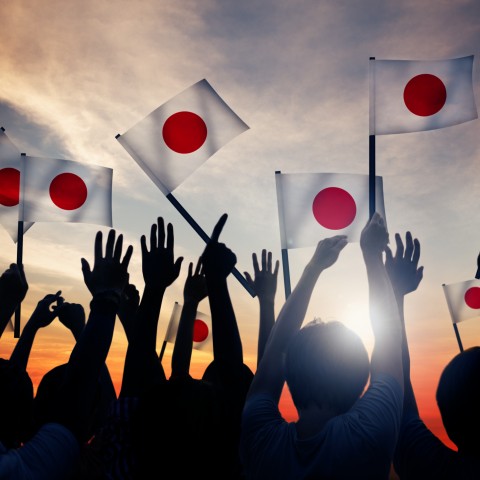
長く深い歴史と文化 vs. 苦い戦争の面影 Nagaku fukai rekishi to bunka vs. nigai sensō no omokage
(“Long and deep history and culture vs. vestige of the bitter war”)
5. Conclusion
In this article, we introduced the facts about the Japanese National Anthem from various aspects, including:
- Lyrics and Music
- History – ancient time to the present
- When is it typically sung
- Controversies over Kimigayo
Now you know all about the Japanese National Anthem! The world’s shortest lyrics make it easy to learn and you can sing it together the next time you listen to it at Olympic Games or International sports events!
If you would like to learn more about the Japanese language, you’ll find a lot more helpful content on JapanesePod101.com. This is the best place to learn Japanese online, providing a variety of free lessons designed to help you improve your Japanese-language skills.
If you are interested in learning more, the following articles are just right for you:
And there’s so much more! Be a faster learner and enjoy studying Japanese at JapanesePod101.com!
Before you go, let us know in the comments if there are any specific topics or situations you’d like to learn Japanese phrases for. We’d be glad to help, and we look forward to hearing from you!

























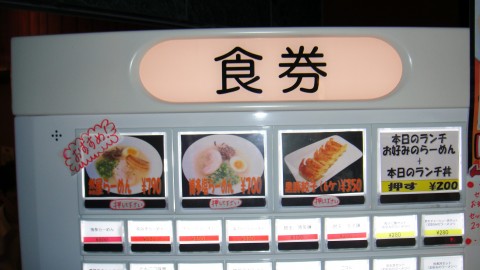







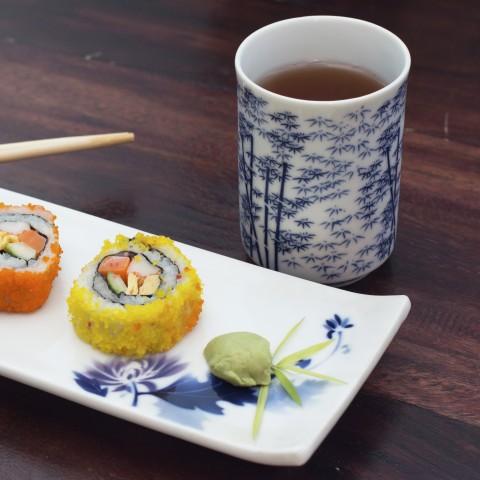











 Table of Contents
Table of Contents




